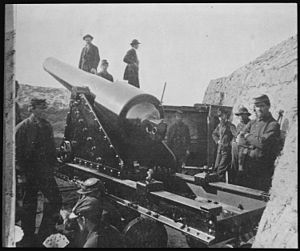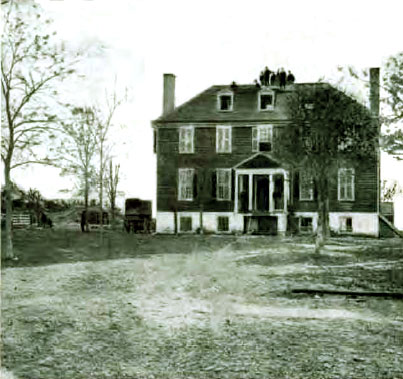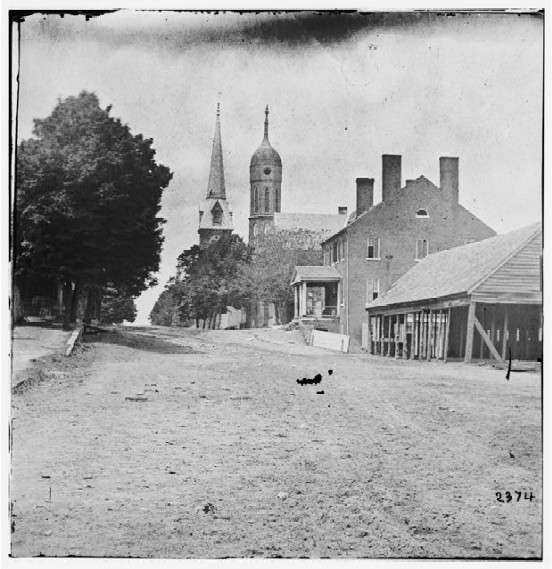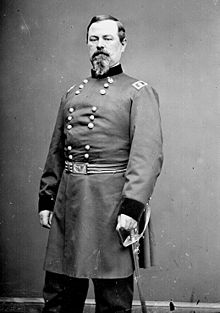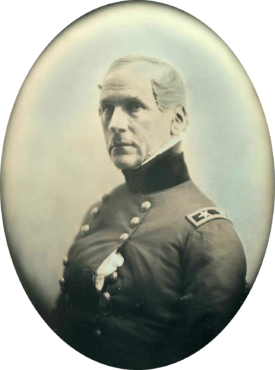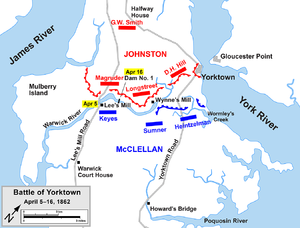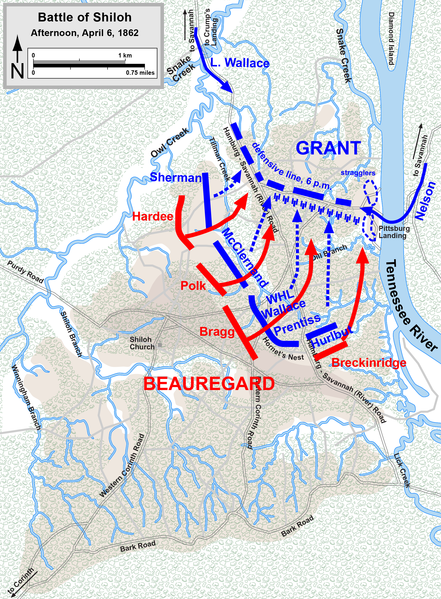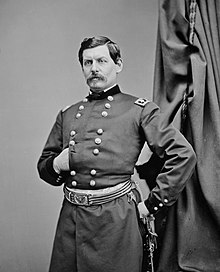 |
| Berry's Ferry, Present US Highway 50 Between Paris and Winchester |
WASHINGTON, April 23, 1862.
Honorable E. M. STANTON,
Secretary of War:
Report of Frederick Winter, captain Company I, Seventy-fifth Regiment
Pennsylvania Volunteers, upon the late casualty on the Shenandoah River,
in which a large number of the members of Companies I and K were
drowned.
On Friday, 11th instant, I was commanded to proceed with the pioneers of
the Third Brigade to the Shenandoah River to erect a bridge over it, to
have it finished by about 8 o'clock on the next morning. Arriving at
the place I found, what I knew before, that this river was from 400 to
500 feet wide, and so deep and rapid that the building of a bridge was a
matter of impossibility.
After consulting the engineers of the staff of General Blenker, namely,
Captain Schulz and Lieutenant Sprandel, we came to the conclusion to
build rafts, as the only way to transport the troops over the river. On
Sunday evening we were able to convey over our first raft a portion of
the Fifty-eighth Regiment New York State Volunteers, and on Monday,
another raft being finished, we passed over the balance of the
Fifty-eighth, together with the Seventy-fourth Regiment Pennsylvania
Volunteers, and nearly a company of cavalry.
The working of the rafts was done by three ropes, of which one was tied
on a tree above the landing place and the others were managed on both
shores by the men on the principle of a floating bridge. The best idea I
can give is the diagram of our position.
MAP.
On Tuesday, at noon, three regiments of infantry, with ambulances and
horses and nearly a company of mounted rifles, had crossed the river
without any accident worthy of note. General Bohlen informed me that he
was desirous of sending over a number of baggage wagons, and would
endeavor to do so by an old ferry-boat which was brought up the river
the day before and had undergone some small repairs at the hands of our
men, the same being destroyed by the rebels before they left. I spoke to
General Bohlen in regard to this boat, and informed him that I had no
confidence in its strength, but as by the transporting of a baggage
wagon no lives were endangered I consented to make the trial. At the
same time, my physical powers being exhausted by four days' continuous
hard working, I asked him to be relieved for a few hours from duty,
which he granted, by ordering Brigade Quartermaster Weik in my place;
but instead of testing the strength of the boat with a baggage wagon, as
I suggested, Company D, of the Seventy-fifth Regiment Pennsylvania
Volunteers, was placed on the boat and carried in the same way as was
done before with the rafts. Company D consisted of about 60 persons. No
accident did happen, but the boat drew much water. Quartermaster Weik at
this time declared that this mode of conveying the troops across was a
perfect humbug; that he could do it much easier and quicker by fastening
the rope marked ggg 20 yards farther below the point marked a in the diagram, in which case the rope marked fff would become entirely useless.
In spite of the earnest entreaties of all the officers present, namely,
the engineers of the Eighth New York, and others who were at the time
constructing another raft near by, he persisted in having his own way,
covering his ignorance by his own presumed superior knowledge.
Lieutenant Sprandel, of the staff of General Blenker, who was commanded
to assist Captain Schulz and myself in transporting the troops, informed
him that if he insisted in his mode of conveyance, which he was sure
would lead to the death of many men, he should be compelled to leave, as
he could not assume any of the responsibility thus incurred. Still he
persisted. Lieutenant Sprandel left in disgust, not being satisfied to
become a willing witness to the scene that he had predicted was bound to
follow such a foolhardy undertaking.
General Bohlen commanded Companies I and K to be conveyed across. After
there had been more than 70 persons aboard and the boat began to draw
water, Lieutenant Winter, my unfortunate brother, protested against
having more men aboard, as the boat could not carry, the men already in
it; but still General Bohlen ordered several more, about 7 or 8, to go
aboard. No precaution was taken to draw the boat on the opposite shore,
and when within 20 yards of its destination the boat remained
permanently fixed, drawing more and more water, and was expected to go
down at any moment.
Quartermaster Weik now ordered the men to draw the boat on shore on the
rope which was tied on the tree. Several experienced boatmen that I had
employed told him that it was impossible to draw the boat on the shore
upstream, as this would run the boat under water. Not willing to take
advice or listen to the experience of others, and in spite of all
protestations, going even so far as to order the men to keep their
mouths shut, he called on Captain Wyck, of Company K, to command his men
to draw upon that rope.
The order was obeyed; but no sooner was it done
when the bow was drawn under water, the boat careened, and swamped. The
scene that followed beggars description. Not much help was to be done,
and the greater part of the men swept away by the rapid current of the
Shenandoah.
The loss, as far as known, consists of: Company I, Lieutenant Winter and
22 privates; Company K, Captain Wyck and 24 privates; Captain Wilson,
commissary of Third Brigade; one pioneer of Company A; one servant of
Lieutenant Shindler, Company K. Total, 51 men.
Under these circumstances I would respectfully ask that the Department
appoint a court of inquiry to investigate the matter and to determine
the cause of the mishap.
Respectfully, your most obedient servant,
F. WINTER,
Captain Company I, Seventy-fifth Regiment Pennsylvania Vols.
Series I., Vol. 12, Part 3, Page 103.
The 75th had taken shelter from a heavy snow storm in early April near Salem, Virginia. From there they moved by way of Upperville to Paris, then to Berry's Ferry (North of Front Royal, east of Winchester, and south of Berryville). Because of the recent snow storm the river was swollen across the plain from its normal width of around 350 feet to near 500. Using an old boat from the ferry, crossings were made despite the risk, until at last the current of of the river caused the boat to stop in the river and, probably in part due to efforts to draw the boat onto shore by rope, capsize. The men were in full marching gear with their heavy packs on their back. Consequently there were few survivors. There is no record General Bohlen was censured, as he continued on with the army through the Valley Campaign.
